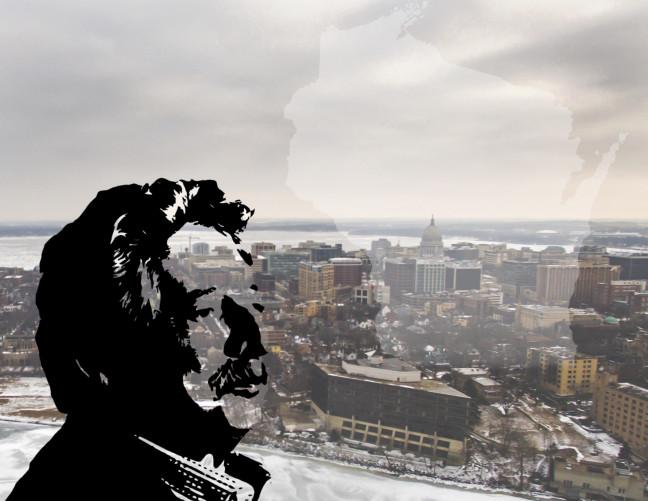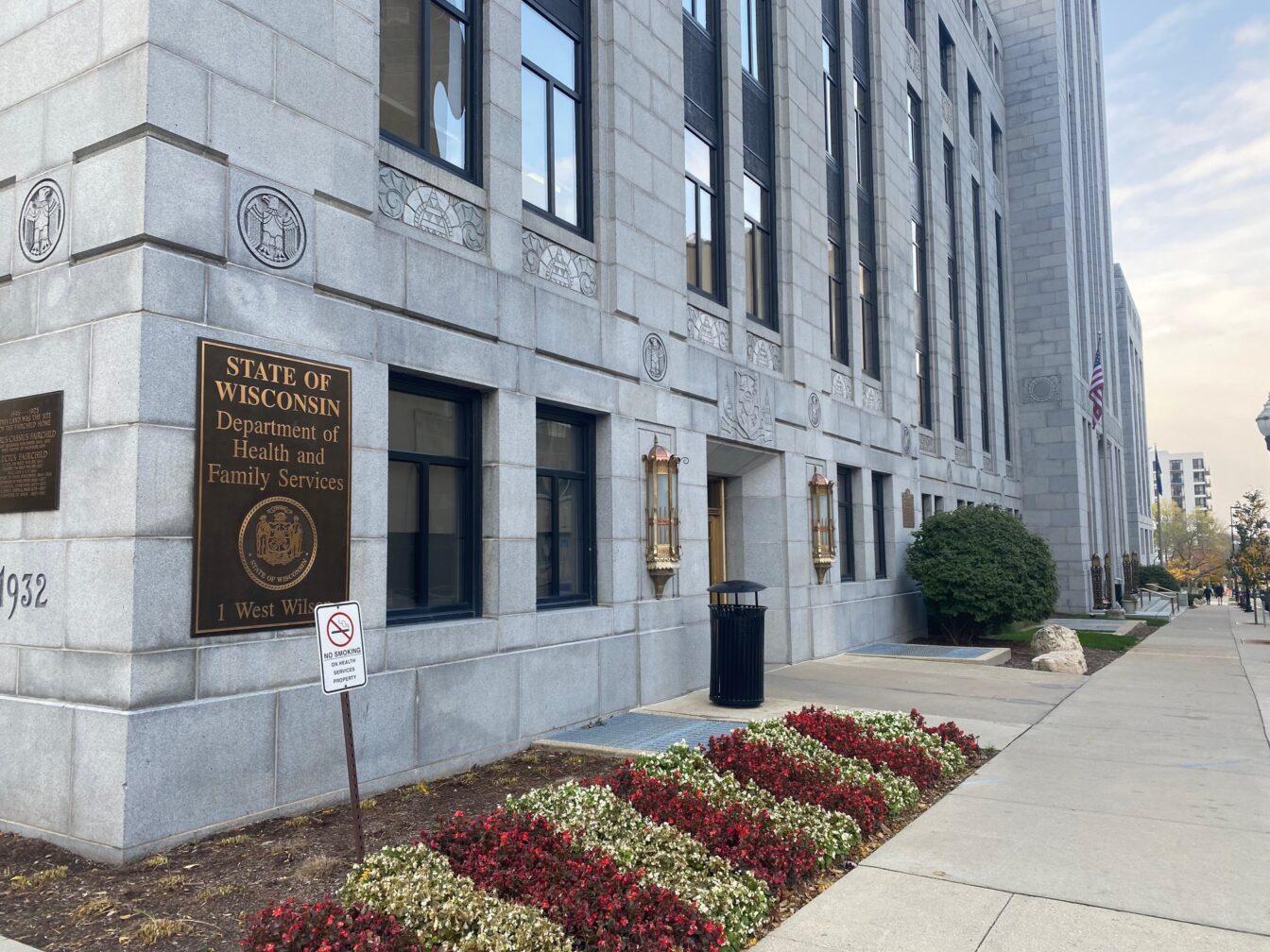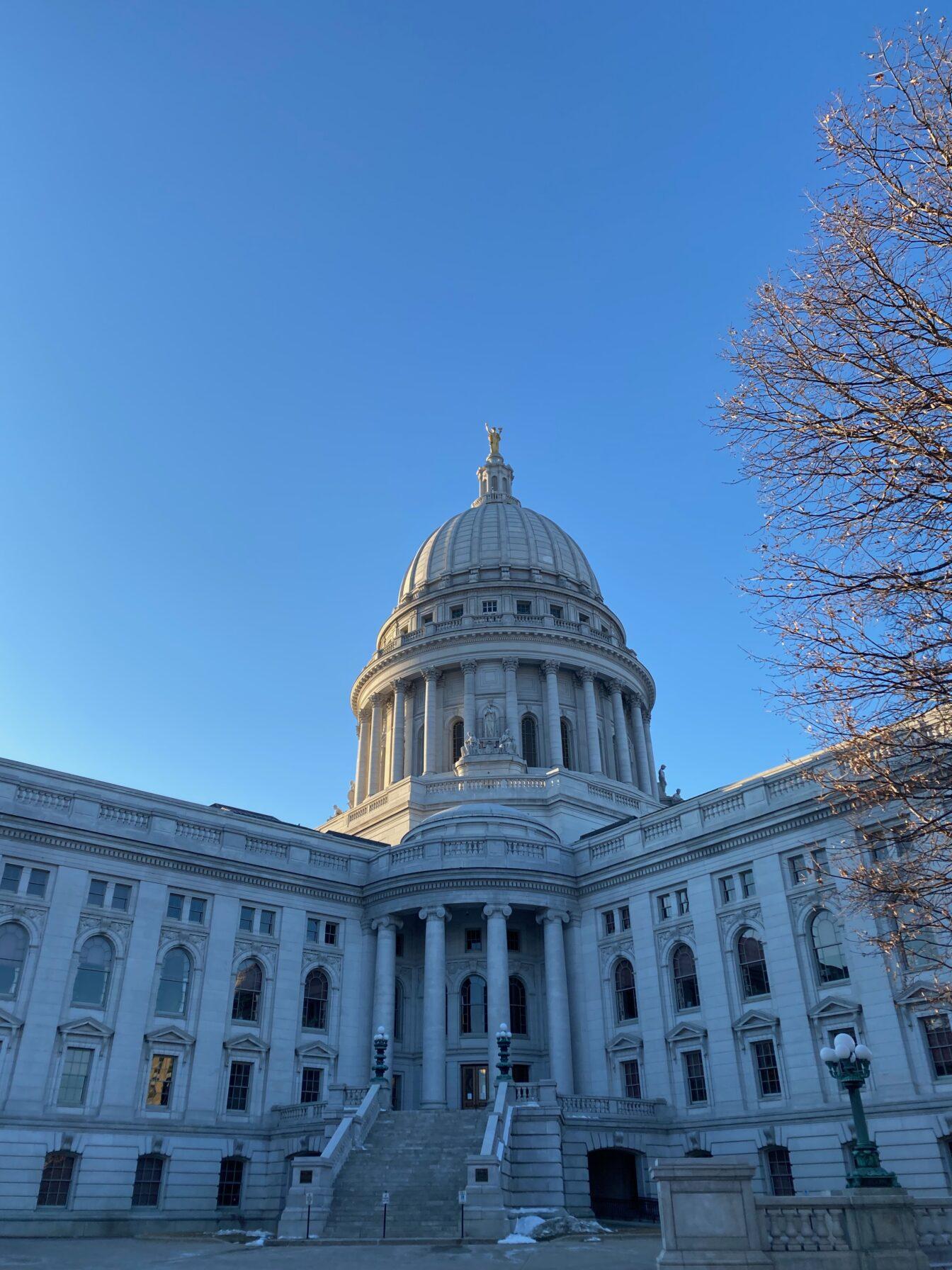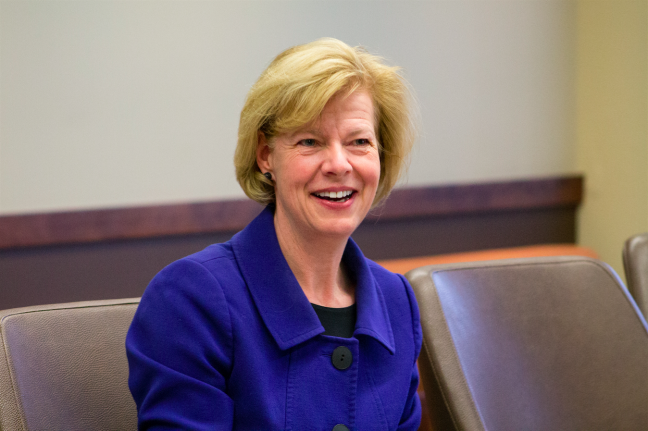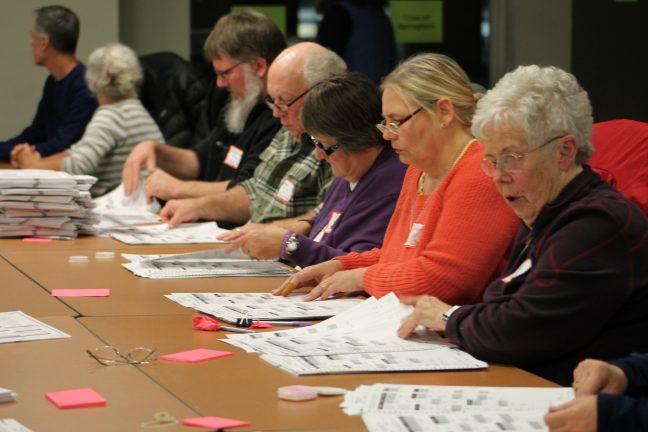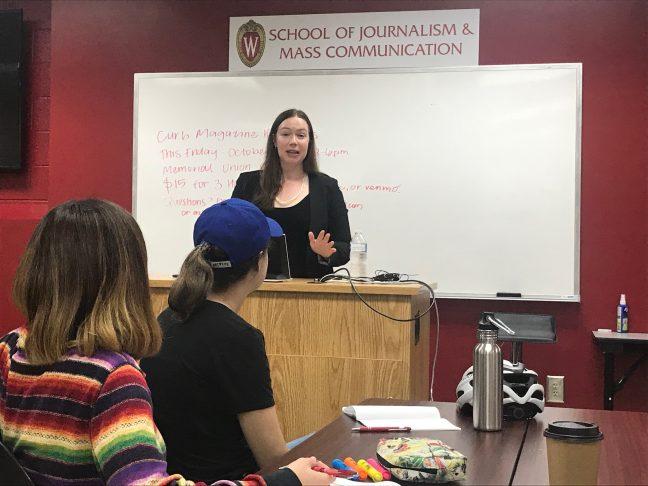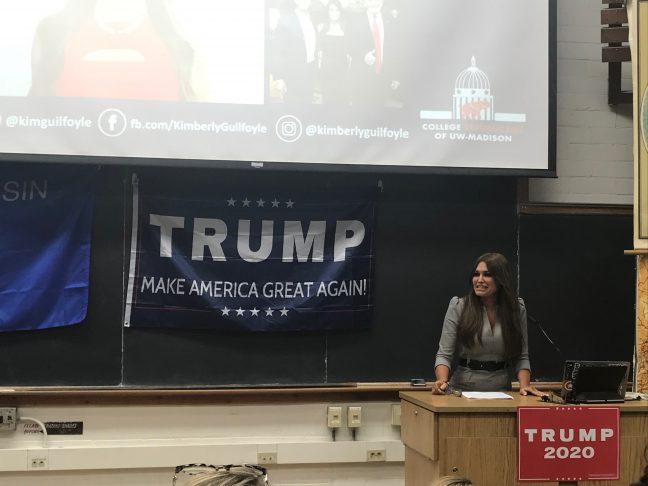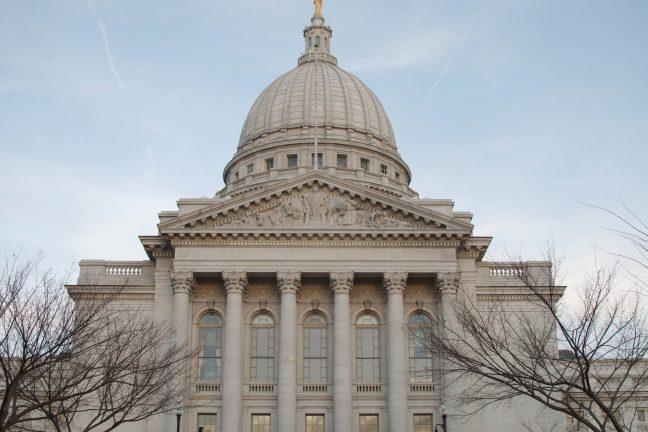It was 1967. The country was gripped by anti-war protests led by college students across the nation.
In Madison, Paul Soglin was one of the student leaders at the forefront of the anti-war movement — giving speeches against the Vietnam war at rallies, marching at the front of protests and helping organize large masses of students. Soglin’s activism culminated in his arrest in 1969 on the charge of unlawful assembly.
In the decades since then, Soglin has outgrown his reputation as a rabble-rouser and gone on to earn a law degree, serve 21 years as mayor and work in the private sector.
When Soglin first ran for city council in 1968, he found success in part because of his history as a firebrand student activist. Since then, Soglin has evolved into a figure seen as both too liberal and not liberal enough, depending on who you ask.
The Soglin that finds himself in the most crowded Democratic gubernatorial primary races in a decade is no longer the insurgent candidate promising to upend the system, but a known quantity with a long track record that may prove to be his greatest liability or asset.
Struggles standing out from the crowded primary
While the most recent poll shows State Superintendent Tony Evers in the lead with 29 points, including an 11 point lead over the mayor in Madison, Soglin remains a top contender in the race.
Sen. Kathleen Vinehout, D-Alma and former Wisconsin Democratic Party Chair Matt Flynn are also contenders for the race, though they lag behind Evers by at least 18 points. A myriad of other candidates are also running, but most are not even generating high enough support to register in the polls.
Despite the crowded race, Ald. Mike Verveer, District 4, said Gov. Scott Walker’s Twitter attacks against both Soglin and the city of Madison means he must perceive the mayor as a threat.
“I think [the tweets] show the governor’s strategists clearly believe that Soglin is a threat to the governor’s re-election and believe he’s a front-runner,” Verveer said.
But at this point, Soglin has yet to produce any concrete platform that would set him apart from the pack, which is no surprise given he’s the newest contender.
At a press conference in January, Soglin said his decision to run was motivated by independent polls he had conducted but did not elaborate on his findings or any fine details to his strategy.
Soglin has said his campaign will be remembered as the “supper club campaign,” due to the importance he places on meeting with voters personally when trying to understand which issues he should focus on. One main part of his strategy will be meeting with voters one-on-one in local areas such as supper clubs, especially in rural Wisconsin, an area where Democrats traditionally lack support.
The association between supper clubs and Old Fashioneds makes Soglin’s campaign branding ironic given his antagonism toward alcohol-related businesses, especially within the State Street area. On Feb. 1, the mayor proposed a moratorium on all new liquor licenses near the campus area.
Soglin has said his policies curtailing alcohol licenses are aimed at reducing violence in the downtown area while also helping brick and mortar retail spaces remain competitive. Despite these policies, he has maintained that he is a business-friendly candidate with experience both in the public sector as mayor and in the private sector working for Epic.
But Verveer said it’s going to take more than supper clubs and branding himself as “business-friendly” to win the race.
Soglin looks to students for support
Given that the Aug. 14 primary falls before the beginning of the school year, it’s unlikely student turnout will play an outsized role in the primary, but Soglin said appealing to students and ensuring a high turnout will be critical to victory in both in the primary and in the general.
“Students tend to vote for progressive candidates and one of the challenges is getting students to turn out given some of the restrictive voting laws we now have,” Soglin said.
Students, Soglin said, ought to support him as their candidate given the ten years he has spent at the University of Wisconsin and his firm support for public investment in higher education. Soglin said he would work to ensure that UW System reclaims its place as the largest portion of the state budget, rather than the Department of Corrections.
Soglin bemoaned cuts to the system which have hampered the ability of campuses to provide all the necessary courses needed to allow students to graduate quickly. He also said he believes funding reductions have led to UW having difficulty in retaining top faculty and an overall drain in talent.
In his youth, Soglin was arrested at the Mifflin Street protests, and during Walker’s passage of Act 10, he consistently protested against the cuts to the rights of public employees. Given this background, it’s unsurprising Soglin would support less restrictive guidelines regarding student protest at UW than the ones recently put into place.
Soglin said he would approach the issue of campus free speech through two lenses: The necessity for all viewpoints to be explored on campus, and the problem of overly broad restrictions on free speech currently being enforced, which seem to able to punish students for actions which have not even taken place yet.
Soglin said he hoped for a return to the freedom enjoyed by both protesters and controversial speakers during the 1960s, such as when then-presidential candidate George Wallace spoke at UW or when the State Department sent representatives to college campuses in an effort to spread pro-war information to students.
“The University has long had a tradition which embraces heckling, whether it was George Wallace or truth squads from the State Department … there was heckling at times,” Soglin said. “That kind of behavior is now encompassed by GOP constraints … at the same time, no matter how great a racist Wallace was, he was entitled to make his case.”
It remains difficult to gauge which candidate is likely to garner the most student support in the general election, especially since UW College Democrats refuse to comment on the race in order to remain neutral until the eventual candidate is chosen.
Meanwhile, College Republicans spokesperson Emelia Rohl condemned Soglin as a candidate who would sow ruin for students and the state economy. She said Walker’s ongoing tuition freeze and Foxconn deal are important accomplishments which will convince voters to stick with him, regardless of their opinion of congressional Republicans.
“None of the Democratic candidates stand a chance against Governor Walker’s great track record,” Rohl said.
Hope for progressives
Barry Burden, University of Wisconsin professor of political science, said another challenge Soglin faces in his campaign is whether or not he can appeal to rural voters as well as urban ones, especially since Republicans would likely brand him as an “isolated urban liberal.” The choice to visit supper clubs to engage with constituents may help endear him to this end since many of them are located in rural parts of Wisconsin.
Even if he should win the primary, Soglin faces a tough competition against Walker. Burden said despite the polarizing policies Walker has adopted, he remains the favorite to win the general election in November. But Verveer said Democrats and neutral observers believe the race may be closer than in the past.
This past January, Democrats won a Senate seat in a Republican-leaning district in western Wisconsin. This unexpected turn in the special election planted seeds of hope for progressive wins in future elections.
“You read all the tea leaves and it’s looking like it could very much be a Democratic party election,” Verveer said. “Obviously, historically the first midterm election following a new presidential administration, the president’s party suffers significant losses up and down the ballot.”
Critics remain
Even as the mayor has faced attacks from Walker for having met with Fidel Castro and his progressive policies, Soglin has seen attacks that his policies as mayor have not been progressive enough. Specifically, his attempts to regulate where homeless people may sleep has been met with backlash, including condemnation by the American Civil Liberties Union.
Young Gifted and Black Coalition spokesperson Matthew Brauginn said he was largely unimpressed when heard about Soglin’s run and said there is little that makes the mayor stand out from the crowd. But more than being bland, Brauginn takes issue with Soglin’s approach to dealing with homelessness.
“[Soglin has] shown great hostility toward homeless populations, deciding that it’s more important to address the aesthetics of homelessness instead of aggressive solutions, like housing-first policies,” Brauginn said.
Eventually, whether or not YGB chooses to endorse Soglin will be a matter of harm reduction more than anything else, Brauginn said. If Soglin appears to be the candidate best positioned to allow communities to thrive, then YGB might consider an endorsement.
Soglin said critics like these fail to take into account the effort his government has made to expand affordable housing and his continued support of initiatives aimed at helping homeless individuals. Soglin maintains that curbing where homeless individuals can sleep is a necessary step to ensure safety.
“If you look at my administration, we have constructed more affordable housing than any other administration,” Soglin said. “If the question is ending homelessness, my progressive record is unmatched anywhere in the state.”
On his restrictions of behavior, Soglin said he’s talked with many therapists and medical professionals who have told him that individuals with mental health issues need structure and rules. He acknowledged that while not all homeless individuals have these problems, a significant portion do.
But the attacks from both ends of the political section may be a useful tool for Soglin, both in the primary and in the general.
Ald. Zach Wood, District 8, said he believes the attacks from different ends of the spectrum has worked to Soglin’s advantage in the past. Wood said if Soglin can brand himself as someone who can be progressive while still being effective, then he is likely to endear himself to a large number of people. So far neither Wood nor Verveer have endorsed any candidate for governor.
“A lot of Soglin’s potential strength comes from this dichotomy,” Wood said. “He’s been very progressive on a number of issues such as transportation, but has also managed to get a number of development jobs done.”








